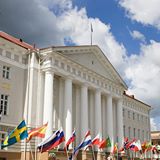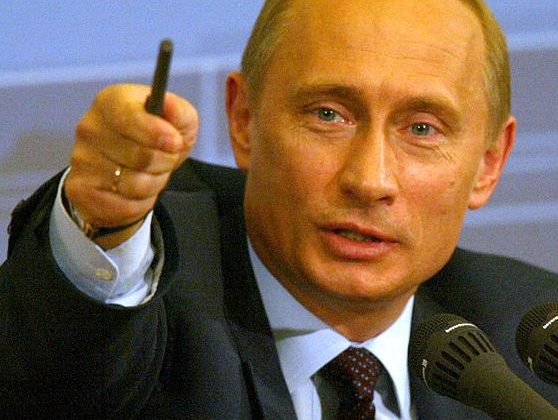The more German experts discuss the recent Bundestag election, the more paradoxes they unveil. For example, many note that Germany has become more Euro-sceptic even though they predict that the new government will stick to timeworn policies. Few see serious changes in Germany's attitude toward Eastern Europe and Russia. Perhaps "Muddling through" is the most popular description of Germany's near-future course.
Martin Schultz, president of the European Parliament, speaking at the University of Tartu’s German Week conference, mentioned that the EU lacks a coherent vision of its Eastern Partnership program. Was he softly addressing the widespread expectation that Germany is developing a more proactive policy toward the EU's eastern neighbors?
If a plan is in the works, what details can we expect? The most typical would be that on the eve of the November 2013 Eastern Partnership Summit in Vilnius, Germany would more energetically support Association Agreements with Moldova and Ukraine – even if this would run against Russia's expectations. (Mathias Huebscher, a CDU party representative, claimed that Russia is historically important to Europe, but it fails to share European values and it voluntary places itself beyond the EU normative order.) There are many voices on the impending topic of East-West wrangling.
Peter Schultze, who served for ten years as head of the Friedrich Ebert Foundation office in Moscow and now teaches at Goettingen University, overtly advocates an approach known as a "Russian first" policy. In his view, Germany and Russia are two global economic drivers for years to come and therefore should stick together in spite of normative gaps.
I am sure that not many Estonians were happy to hear from Schultze that NATO enlargement was a mistake because it only provoked Russia to take a more anti-Western stance. Another one of his arguments – that antagonizing Russia nowadays can create problems for Central Europe and the Baltic states – was taken by Estonian colleagues as a reason for the practical indispensability of both the EU and NATO as institutions that counter-balancing Russian ambitions while anchoring Germany in a set of European and trans-Atlantic policy mechanisms.
The position articulated by Schultze – as well as other well-known German speakers like Alexander Rahr – can be characterzied as both pragmatic (pro-business) and simultaneously fitting into the wider debate of Germany's "normalization," i.e., retrieval of its full sovereignty after decades of divison and submission to external powers. This debate raises the issue of re-nationalization, with a more independent foreign policy of Berlin as one of its possible cornestones.
Although German Ambassador to Estonia Christian Schlaga made a strong case against the re-nationalizing policies of EU member states, within Germany there are voices advocating exactly this. One of these comes from German economist and professor Joachim Starbatty who has openly supported the strongly Euro-sceptic Alternative für Deutschland party, which pulled five percent of the recent September votes, making clear that the federal government is likely to face significant challenges and pressures from this part of the political spectrum.
Interestingly and again paradoxically, Euro-sceptic and pro-Russian attitudes may overlap. In Peter Schulze's interpretation, the EU has a very weak security agenda and a blurred foreign policy strategy in general. It is against this background that Germany might play a role of a mediator between Moscow and Brussels – the latter’s normative zeal has been increasingly irritating the Kremlin.
But is Germany better off locating itself in-between the EU and Russia, or is Germany actually in the EU’s driver's seat? Many Estonians were keen on identifying the dynamics between Berlin and Brussels, since their own positioning within the EU depends very much on this relationship.
Of course, Germany has all the reasons to be proud of its reputation as "the gate to the East," which is sustained by historical experience and economic cooperation with Russia. Yet politically, some tend to think that Berlin, on a number of occasions, played the role as Russia's lobbyist to the West. In an informal exchange of opinions, Ambassador Schlaga denied this portrayal, though added later: "We don't lobby for Russia in Europe, unless this is consistent with our own interests."
Based on this and other similar statements, one might be tempted to portray the German foreign policy debate as one between interest-driven pragmatics and value-oriented idealists (or normativists). But the distinction between these has never been neat, and this is what makes Germany such a complicated political body to analyze.
Those who call for a more normative German approach vis-a-vis Russia do not necessarily extend this policy to Ukraine. A blend of realpolitik and geopolitical approaches can be grounded in a deep regret about Europe's negligence to normative commitments taken at the Paris Charter of 1990. What on the surface looks like a pro-Kremlin political rhetoric can (when seen from a different angle) be interpreted as a German-corporate-business-friendly narrative, and might even have many common points with the Euro-sceptic segment. Further, even the most positive assessments of Putin's regime have been accompanied by the frank recognition of Russia's military weakness and lack of the rule of law.
In conclusion, many experts have a strong feeling that Russia and Germany are changing, but few are certain in what direction and what the consequences will be for wider Europe.










